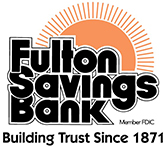
Fulton Savings Bank is committed to helping you find the right borrower, and we offer a variety of products to meet your individual needs. We make the process of securing a mortgage simple and straightforward by offering you the latest in financial tools that enable you to make sound financial choices.
View Our Current Mortgage Rates
Mortgage Loan Application Process: FAQs


